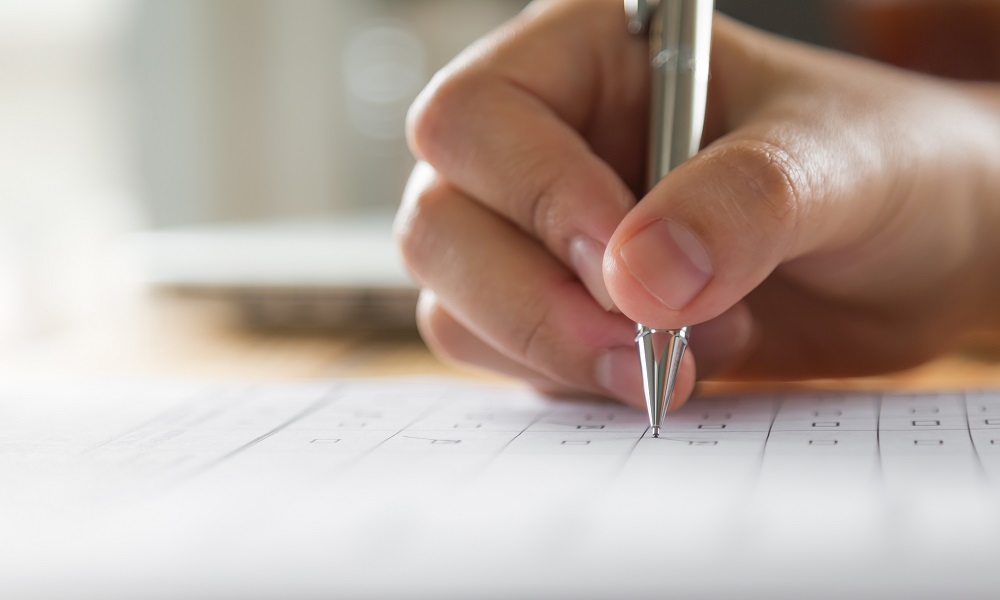
Mock tests are an essential part of preparing for the IRDA (Insurance Regulatory and Development Authority) exams. They not only help familiarize you with the exam format but also give you a glimpse of your readiness and areas that require further attention. However, it’s not enough to simply take mock tests — it’s crucial to analyze your results carefully and use them as a stepping stone to improve your performance.
In this blog, we’ll guide you through how to analyze your IRDA mock test results effectively and leverage that information to boost your scores in the actual Licentiate exam.
-
Review Your Performance in Detail
The first step to improving your scores is to look beyond your overall score and focus on the details. Break down your results to understand where you went wrong:
- Identify Mistakes: Review each question you got wrong. Was it a simple mistake, a misunderstanding, or a lack of knowledge? For each error, try to understand the root cause — whether you misread the question, rushed through the answer, or simply didn’t know the correct response.
- Check for Patterns: Are there specific topics or sections where you consistently perform poorly? For example, if you’re struggling with the “Insurance Regulations” section or “Financial Planning,” it may indicate that you need to dedicate more time to studying those areas.
- Time Management: Did you spend too much time on difficult questions and rush through easier ones? Mock tests are great for practicing time management. If you find that you’re running out of time in a section, it may be a sign that you need to practice pacing yourself better.
-
Focus on Conceptual Understanding
While it’s easy to get caught up in memorization, understanding the underlying concepts is critical for both the mock tests and the actual IRDA exam. Here’s what to focus on:
- Review Theoretical Concepts: Often, incorrect answers stem from a lack of understanding of key concepts, rather than a failure to remember facts. Revisit the chapters or topics you found challenging and make sure you understand the concepts deeply.
- Clarify Doubts: If certain concepts are consistently tripping you up, take the time to clarify them. You can reach out to a mentor, join discussion groups, or refer to online resources or textbooks to clear up any confusion.
- Strengthen Weak Areas: For topics that you found difficult, spend additional time understanding them. Use different study materials such as videos, notes, or textbooks to see if a different explanation can help you understand the concepts better.
-
Improve Your Question-Wise Strategy
The type of questions you face in the IRDA exam will vary in complexity, so it’s crucial to develop a strategy for answering them efficiently.
- Multiple-Choice Questions (MCQs): Sometimes, MCQs may have answers that seem similar, which can lead to confusion. Learn to identify keywords in the questions that can help you eliminate wrong choices. Practice questions with multiple answers and pay attention to the pattern in which the right answer tends to appear.
- Prioritize Easy Questions: During the mock test, make sure to answer the easy questions first. This will help you score quickly and save time for more challenging questions. By analyzing your mock test results, you can identify which types of questions you answer quickly and which ones take longer, allowing you to adjust your exam strategy.
- Elimination Technique: If you’re unsure of an answer, use the process of elimination. Often, eliminating two or more incorrect options can significantly improve your chances of selecting the right one. This is a skill you can improve by practicing with mock tests.

-
Practice, Practice, Practice
One of the most effective ways to improve your scores on the IRDA exam is through consistent practice. After analyzing your mock test results, identify the areas where you need the most improvement, and focus on those areas in future tests.
- Targeted Practice: If a particular section, like “Insurance Products,” continues to be your weak point, practice more questions from that section. Doing targeted practice helps reinforce your understanding and boosts your confidence.
- Simulate Real Exam Conditions: In addition to taking more mock tests, make sure to simulate real exam conditions. This means taking the test in one sitting, following the same time constraints, and avoiding distractions. This will help you build stamina and improve your focus during the actual exam.
- Track Your Progress: Keep track of your scores over time to see how much you’ve improved. As you continue practicing, you’ll likely notice an improvement in your overall score and time management, which will give you the confidence you need on exam day.
-
Learn from Peer Discussions
Engaging with fellow aspirants can offer new insights and help reinforce your understanding. Join study groups or online forums where you can discuss mock test questions, share your analysis, and learn from others’ experiences.
- Collaborative Learning: Discussing questions with peers can help you see different perspectives, especially when it comes to tricky questions or concepts that seem difficult to grasp. Other candidates may have insights or memory aids that you haven’t considered.
- Share Mistakes and Solutions: Group discussions provide an opportunity to not only share your mistakes but also learn how others solved problems. This kind of collaborative learning can be invaluable for improving your exam performance.
-
Refine Your Test-Taking Strategy
By analyzing your mock test results, you can also refine your test-taking strategy. Some additional strategies to consider:
- Skip and Return: If a question seems too time-consuming, don’t get stuck. Mark it and move on, so you can return to it later with a fresh perspective.
- Mind the Negative Marking: The IRDA exam may have negative marking for wrong answers, so be cautious about guessing. If you’re unsure, eliminate obviously incorrect answers and make an educated guess.
- Stay Calm and Focused: A key aspect of doing well in the exam is managing exam-day stress. Practice mindfulness and relaxation techniques during your mock tests to simulate the actual exam environment and build mental resilience.
Conclusion:
Analyzing your IRDA mock test results is a powerful tool for improving your performance. By reviewing your errors, focusing on conceptual understanding, developing a question-wise strategy, and practicing consistently, you’ll gradually build the skills necessary to perform well in the actual exam. Keep in mind that improvement is a gradual process, and with focused effort and perseverance, your scores will increase steadily. Use each mock test as an opportunity to grow and refine your skills, and you’ll be well on your way to acing the IRDA exam.



